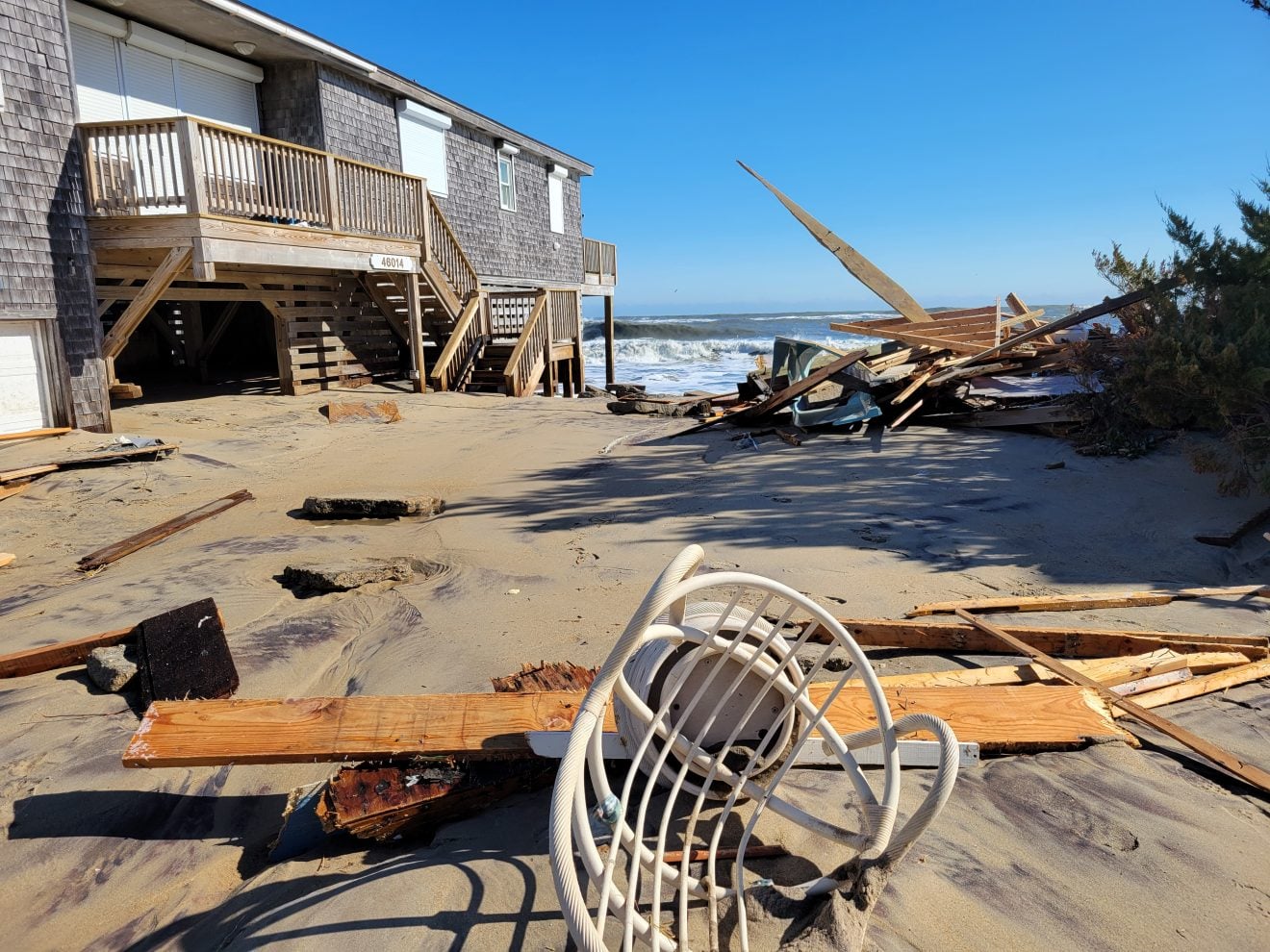
ROCKY POINT – Nearly 1,000 households that rely on private drinking wells downstream of Chemours’ Fayetteville Works plant qualify for in-home filtration systems or a public water utility connection.
Almost 900 wells that have been tested so far in Brunswick, Columbus, Pender and New Hanover counties had at least one type of per- and polyfluoroalkyl, of PFAS, at or above the federal government’s lifetime health advisory for a single compound or combined levels of multiple compounds.
Supporter Spotlight
These numbers are likely to rise as testing continues on private wells in the lower Cape Fear region, an area whose residents were rocked nearly six years ago by news that Chemours, a DuPont spinoff, had for decades been discharging chemical compounds from its plant in Bladen County into the river, air and ground.
In Pender County, 2,200 properties are eligible for testing, according to Michael Scott, director of the North Carolina Department of Environmental Quality’s Division of Waste Management.
“This isn’t a small amount,” he said.
Scott addressed Tuesday night the more than 100 people that were gathered in a high school auditorium in Rocky Point, an unincorporated area of Pender County, to hear the latest updates on well testing in that county.
During the informational meeting hosted by the state’s environmental agency, residents were given the opportunity to ask a panel of state officials questions, including Scott.
Supporter Spotlight
Questions and comments broached in the question-and-answer portion of the meeting shed light on the complexities residents with private drinking water wells face.
Some wanted to know why their requests to get their wells tested by Parsons Environment and Infrastructure, the company contracted by Chemours to conduct sampling, have been declined.
One resident asked why wells that irrigate gardens and are the drinking supply for farm animals are not eligible for testing.
Others pointed out that their wells tested for PFAS, but not above the health advisory, while neighbors’ wells tested higher for at least one chemical compound, making them eligible to receive either in-home filtration systems or the option to tap into a public water utility.
Sharon Mathis said samples from her well contained 6.9 parts per trillion, or ppt, of GenX, a compound specific to the Chemours facility dozens of miles up the Cape Fear River.
That’s below the U.S. Environmental Protection Agency’s health advisory for GenX at 10 ppt, which means Mathis does not qualify for alternate drinking water.
“Why would I even want to drink it?” she said. “It’s there. That guideline still doesn’t make any sense to me.”
Under the terms of a 2019 consent order with DEQ and Cape Fear River Watch, Chemours has to cover the costs of installing a whole-house granular activated carbon filtration system in residences with private drinking wells found to contain more than 10 ppt of GenX.
Households with wells that exceed that amount also have the option to tap into a public water line if the home is close enough to a public utility pipe.
Testing is limited to 12 compounds. Wells that test for an individual compound above 10 ppt and those with any combination of the 12 compounds registering above 70 ppt are eligible to receive up to three under-the-sink reverse osmosis filters.
Chemours must pay for the initial installation of the filtration systems and maintain the systems for the next 20 years.
These offerings to residences with PFAS-tainted wells are a far cry from a cut-and-dry resolution.
Some who’ve qualify for reverse osmosis, or RO, filters prefer to take on the out-of-pocket cost and pay the difference to upgrade to whole-house granular activated carbon, or GAC, filtration systems.
That’s not an option under the consent order.
Residents who qualify and elect to tap into Pender County Utilities, which oversees that county’s six water and sewer districts, have been told they’ll have to wait months, even years before they can access the public water supply.
The continuing clogged global and national supply chains have drastically slowed shipments of everything from brass fittings to smart meters used to connect homes to public utilities.
A county official attending Tuesday’s meeting explained to the crowd that he placed an order for meters in May 2022. He received those meters last month. Normally, he would receive an order within 30 days.
“The supply chain issue is really worse than anybody realizes,” he said. “It is compounded with Pender County, Brunswick County, Onslow County, your counties that are seeing growth.”
Some questioned why residents with the option to connect to Pender’s water lines would even want to since in some cases chemical compounds in municipal utilities are higher than those found in private drinking wells.
Scott reminded the crowd that no one is forced to tap into municipal water.
“I would say the utilities never took in this water knowing the compounds were in it,” he said.
Much remains unknown about the effects of PFAS to human health, but studies, including those conducted by researchers at some of North Carolina’s universities, indicate high levels of PFAS have impacts on thyroid and immune system functions, some growth and development in children and increased risk in some cancers, including testicular and kidney.
Under court order, Chemours has taken steps to reduce the amount of PFAS it’s Fayetteville plant releases into the environment. More than 99% of PFAS is now prevented from being emitted into the air and water discharged from the plant is being captured, stored and shipped to a hazardous waste site in Texas.
A more than a mile long, 70-foot-deep wall is currently being built on the plant site to stop PFAS in the groundwater from flowing into the Cape Fear River. Water stopped at the wall will be filtered into a groundwater extraction system and treated before it is discharged.
Julie Grzyb, deputy director of the state’s Division of Water Resources, said that, until the barrier wall is completed and all the wells behind it are pumping, residents will continue to have PFAS in their water.
Grzyb said the wall is estimated to be completed by April.
“They’re drilling,” she said. “They’re hitting a lot of clay. Some days they’re going faster than expected. Some days they’re going slower than expected.”
The state will continue testing the Cape Fear River at different sites downstream of the plant to determine the effectiveness of the wall, she said.
The results of those tests will be made available to the public, one that appears to have little faith in a company that knowingly discharged dozens upon dozens of compounds into the river for more than 30 years.
Residents in the Cape Fear Region are predominately gobsmacked at the company’s intentions to expand the Fayetteville plant, growth company officials say will not result in an increase in PFAS.
Chemours is in the process of seeking permits for the proposed expansion.
Shortly after the EPA announced last June its health advisory for GenX, Chemours sued, arguing the agency failed to use best available science when making its determination.
Last year, a federal appeals court judge allowed several North Carolina environmental and health groups to intervene in that lawsuit.
Some of those same groups, including Cape Fear River Watch, are suing the EPA for failing to require Chemours to conduct critical health studies on 54 compounds discharged from the Fayetteville plant. Last month, a federal judge heard arguments in the EPA’s case to dismiss that lawsuit. A decision has not been made.







